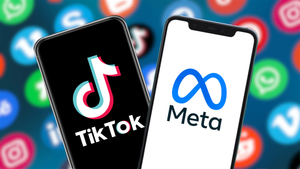CHICAGO, Aug. 14, 2025 (GLOBE NEWSWIRE) -- Numerator, a data and tech company serving the market research space, has released new findings on Consumer Trends in Clean Living, an analysis of how Americans define “clean living” and how those beliefs influence consumer behavior. The report combines a custom survey of 5,300 consumers with Numerator psychographic and verified purchase data to explore evolving consumer expectations around health, food, household products, and corporate responsibility.
Key findings include:
- Clean living has a variety of interpretations, but healthy eating leads. Among U.S. consumers, the majority (71%) associate clean living with healthy eating, followed by avoiding chemicals and additives (58%), living in a clean environment (57%), and focusing on health and wellness (57%).
- Nearly three-quarters of Americans say a clean lifestyle is important to them. 74% of consumers agree that clean living is important, with 33% strongly agreeing. Consumers place higher levels of importance on clean eating (80%) and healthcare (77%), while a smaller number say it is important to incorporate clean living into beauty (57%) or apparel (48%) choices.
- The clean living consumer defies stereotypes. Compared to all consumers, clean-living consumers are 41% more likely to be Black, 35% more likely to be Boomers+, 30% more likely to be Asian, and 29% more likely to live in the South Atlantic region of the U.S.
- Environmental values and corporate responsibility are important to these consumers. Among clean living consumers, 65% are highly concerned about the environment, 32% are highly aware of a brand’s values, 26% are highly committed to organic foods, and 25% are on a specialty diet.
- The trend is longstanding, not just a recent movement. While the Make America Healthy Again movement has received significant coverage lately, 24% of these consumers claim they have always cared about clean living, and 27% say they started caring in the last 5-10 years.
- Clean living is widely valued but not always accessible. While 88% of consumers believe everyone can benefit from clean living, only 70% believe it is achievable for their own households. Price (65%) is the most frequently cited barrier, followed by time/effort (37%), trust (31%), knowledge gaps (29%), and company or government practices (22%).
- Generational and income-based divides affect barriers. Gen Z, Millennials, and households with children are more likely to cite time/effort as a barrier, while Boomers+ express more concern about trust. Meanwhile, low-income and rural shoppers face challenges around access and knowledge gaps.
- When it comes to food and beverages, the majority of U.S. consumers already lean toward “clean” tendencies. More than three-quarters (78%) of consumers think tighter restrictions around artificial dyes are needed, 74% try to be aware of a product’s ingredients, 68% try to avoid ultra-processed foods, and 68% prefer to consume raw or minimally processed foods.
- Artificial dyes rank above sugar or high fructose corn syrup as a top concern. When looking at labels, nearly half of shoppers say they look for no artificial dyes or colors (46%), no preservatives or additives (44%), all-natural ingredients (42%), and no high fructose corn syrup (42%). Fewer look for no sugar / low sugar (40%), no artificial sweeteners (40%), or non-GMO (29%).
- Clean-living shoppers spend more of their grocery dollars at food and club retailers. A greater percentage of this group’s grocery spend goes to retailers like Costco, Publix, Aldi, Whole Foods, and Trader Joe’s, and they spend significantly more on items like seafood, beans and grains, and produce, and less on items like candy, snacks, frozen foods, and shelf-stable meals.
- Restaurant preferences reflect clean living values. When dining out, these consumers spend more at Chipotle, McDonald’s, and Starbucks. When visiting QSRs, they spend 15% more on breakfast sandwiches, 11% more on salads, 8% more on coffee, 6% more on chicken entrees, and 5% more on chicken sandwiches and wraps.
- Clean consumers spend less on cold and allergy medications. These consumers dedicate more of their overall health spend to digestive health, pain relief, probiotics, and sleep aids, and less on cold, cough, and flu and allergy care.
- Two-fifths of shoppers want non-toxic and chemical-free cleaning supplies. When asked what factors, besides price, are most important when choosing household cleaning products, consumers said: safe for use around kids and pets (51%), made with non-toxic or chemical free ingredients (41%), not tested on animals/cruelty-free (41%), and biodegradable or environmentally safe (33%).
- Conscious cleaning products see elevated demand. Clean consumers are 147% more likely to purchase the cleaning brand Active, 142% more likely to purchase Seventh Generation, and 89% more likely to purchase Orange Glo, and 85% more likely to purchase Meyer’s Clean Day.
- Microplastics are an emerging consumer concern. 86% of consumers express some level of concern about microplastics, with 43% very or extremely concerned. Behavioral changes include swapping plastic food storage containers for glass (28% of consumers) and switching pots or cooking utensils to nontoxic or plastic-free options (17%).
The Clean Living Survey was fielded to 5,291 U.S. consumers in April 2025. Purchase data was compiled using Numerator’s Total Commerce Panel.
About Numerator:
Numerator is a data and tech company bringing speed and scale to market research. Numerator blends first-party data from over 1 million US households with advanced technology to provide 360-degree consumer understanding for the market research industry that has been slow to change. Headquartered in Chicago, IL, Numerator has 5,800 employees worldwide; 80 of the top 100 CPG brands’ manufacturers are Numerator clients.

Bob Richter Numerator 212-802-8588 press@numerator.com







